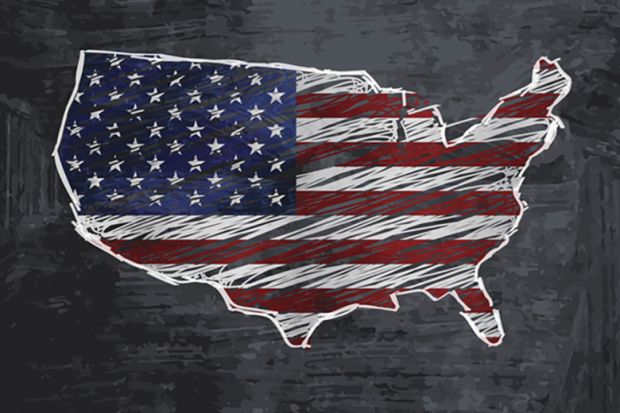The appointment of Betsy DeVos as US education secretary is the “most negative” recent higher education development in the country, according to university leaders and experts.
More than 100 senior US university leaders and higher education experts were asked for their reactions to 20 higher education events and trends that had been prominently featured in the higher education media between June 2016 and May 2017.
The appointment of Ms DeVos was rated as having the highest, and most negative, impact; it achieved a score of 3.89 for degree of impact (where 1 is very low and 5 is very high) and a score of 1.7 for valence of impact (where 1 is very negative and 5 is very positive).
One respondent from a philanthropic foundation stated that her "focus on deregulating education, especially the loan and for-profit college industries, will hurt most Americans, especially low-income Americans".
Another respondent, a programme director at a research institute, said her "efforts to abandon standards for performance of [institutions of higher education] and loan providers will likely reverse many of the advances the Obama administration made and prevent further advancement".
Participants generally viewed higher education policies advanced by the Obama administration as having a high and positive impact on students or the sector, and viewed the reversal of those policies and newly adopted policies of the Trump administration as having a high but negative impact, according to the study from research and academic consultancy company Ithaka S+R, which surveyed 111 experts.
In particular, the reversal of regulations constraining private student loan servicers (1.99 for valence) and the uncertainty surrounding the Trump administration’s approach to income contingent loan repayment (2.32) were both viewed negatively and were among the highest impact events.
A change in federal policy that allowed students to use tax returns from two years prior to complete federal student aid applications was rated as the most positive high-impact event (4.03 for valence).
The trend of high profile protests prompted by controversial speakers at several campuses was seen as having a relatively lower impact (ranked 14th in terms of degree of impact), but was viewed as one of the most negative developments (2.1 for valence).
But, overall, respondents had a “slightly positive and hopeful stance” toward the state of the US’ higher education sector.
They cited addressing degree completion rates, the quality of student learning and affordability for students as urgent or very urgent for improving undergraduate education.
Register to continue
Why register?
- Registration is free and only takes a moment
- Once registered, you can read 3 articles a month
- Sign up for our newsletter
Subscribe
Or subscribe for unlimited access to:
- Unlimited access to news, views, insights & reviews
- Digital editions
- Digital access to THE’s university and college rankings analysis
Already registered or a current subscriber?








